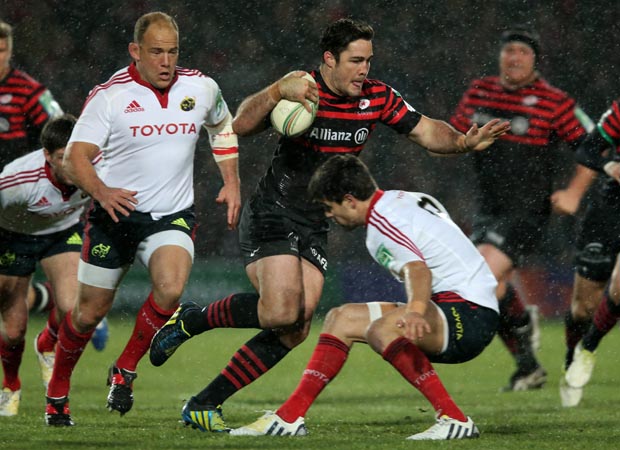
 Brad Barritt is not going to see the England No.12 jersey handed over to Billy Twelvetrees, Luther Burrell, Kyle Eastmond, or any other rival inside-centre without an almighty tug of war. And the way he has helped Saracens to shunt opponents aside since returning from four months on the sidelines with a foot injury has given his claim extra muscle.
Brad Barritt is not going to see the England No.12 jersey handed over to Billy Twelvetrees, Luther Burrell, Kyle Eastmond, or any other rival inside-centre without an almighty tug of war. And the way he has helped Saracens to shunt opponents aside since returning from four months on the sidelines with a foot injury has given his claim extra muscle.
Helping his club to a Heineken Cup semi-final against Clermont at Twickenham on Saturday has seen to that, as has securing the runaway league leaders a Premiership play-off slot already.
For all the plaudits heaped on Twelvetrees and Burrell for their Six Nations exploits, Barritt remains the best defensive centre in the country. His fearless and ruthlessly efficient tackling meant that when Stuart Lancaster started his England rebuild in 2012 he didn’t hesitate to pick the Durban-born, South African-schooled Barritt as his midfield bulwark.
Until returning from the 2013 Lions tour with foot problems Barritt had been the England head-coach’s first choice inside-centre for his first two seasons in charge, and had 16 caps. However, having missed the autumn series and the Six Nations, Barritt acknowledges that helping Saracens to reach for the stars over the next six weeks – with a Heineken Cup and Premiership double within reach – also gives him a stage to remind Lancaster that he can shine again for England.
In particular, Barritt does not want to be typecast as a tough, hard-tackling banger with the play-making skills of a bloke in a suit of armour.
There is a growing body of evidence to support Barritt’s contention that his skill set is multi-dimensional rather than one-track. A sure sign came in Saracens comprehensive win over Bath at The Rec at the end of February when Barritt’s 25 metre diagonal grubber from a Bath fumble was so pin-point perfect that David Strettle didn’t have to break stride for his try.
The suspicion that Barritt, 27, has not been in a position to show everything he has tucked away in his locker due, in part, to the mechanical approach Sarries favoured until little more than a year ago, is supported by his past history.
“I played three seasons of Super Rugby for the Sharks. In the second season we got to the semi-finals and I played most of that season at 10, and I also played a lot at 10 in the Currie Cup, which we won in 2008. But the season when we played the Bulls in the final (2007) I played all season at 12.”
Barritt says the experience of playing fly-half as well as inside-centre has been invaluable. “Playing 10 as well as 12 gives you a much greater feel for the game, as well as greater vision, and it also makes you understand what helps the 10. Communication and scanning for opportunities is something I’ve taken from my time at 10 – as a 12 you’re the eyes of the 10 in spotting opportunities and giving him the correct information. In terms of distribution and being an extra play-maker it’s definitely benefitted me.”
However, he stresses that it is paramount to be a team player: “You have to do the right thing for the side you are playing for, and at Saracens I get the chance to show my carrying and distribution side, but if you get the call to put in a clever grubber or a clearance it’s important to have that. Often at Saracens it is structured that the 9 and 10 do most of the kicking, and the centres chase and challenge for the ball. But it’s great for me having had experience at 10 to know that if called upon I can step in and play for territory or put the kicks in behind. I make it part of my routine to do (kicking) extras in training. I used to goal-kick for the Sharks as well.”
That versatility will be crucial with Clermont again blocking the path to Saracens reaching their first Heineken Cup final – a prize that has also eluded the French club, who were beaten finalists last season, losing to Toulon by a point.
Sarries have stumbled too often against big French sides for any objective assessment to make them favourites to become the first English club to contest a Heineken final since Leicester in 2009, even allowing for home advantage.
Two years ago in the quarter-finals, Clermont’s superior power saw them steamroller Saracens 22-3 at Vicarage Road, with their Aussie fly-half Brock James turning the pressure into points. In last season’s semi-finals, played like this one at Twickenham, Sarries were outmuscled and out-thought by Toulon, with Jonny Wilkinson the executioner.
Even in this season’s pool round they came second to the Toulouse heavyweights, losing 17-16 at Wembley and 21-11 at the Stade Ernest Wallon.
Yet, Barritt is undaunted. There is no sense of false bravado either when he says that Saracens have learned quickly and made such progress this season that if they bring their ‘A’ game they can beat anybody.
Furthermore, rather than seeing their knife-edge quarter-final win over 14-man Ulster at Ravenhill after Jared Payne was sent-off for crunching Alex Goode as a stroke of good fortune, he sees it as a stern test of character which Saracens passed in an unremittingly hostile ground.
“If anything it (a red card) rallies the team that it has happened to. I think Ulster really dug deep and credit to them…but having said that we lost our No.15 (Goode) for the entire game, a guy who has been playing fantastically well for Saracens and he is a cool, calm head at the back for us so it took some readjustment for our team, too.”
Barritt points to Saracens three tries at Ravenhill, and their ability to put points on the board against all-comers this season as the source of his confidence.
“We showed it in that 20 minute block when we scored three tries against Ulster, once going from our own half through six or seven phases. We took our opportunities very well. In the past year to 18 months we’ve evolved to become a far greater attacking threat. Where we were quite low risk in the past, Saracens are now the highest scoring team in both the Premiership and the Heineken Cup. That shows the opportunities we are creating and the communication and work off the ball. I’ve really enjoyed it. There are times you are called on to make the hard yards but, ultimately, it’s about manipulating defences, and when the pass is on moving it and creating space – and that’s something we’ve been doing well.”
As for Clermont, Barritt’s attitude is one of respect, but not awe.
“Leicester showed in the quarter-finals that Clermont are beatable. But they are a fantastic team and we will have to be 100 per cent on song, 100 per cent accurate and physical in attack, be relentless in defence, play in the right parts of the field, and maintain iron discipline. The breakdown, as with all French teams, will be a hotly-contested area.
“In modern rugby you cannot have any weak links, especially at the breakdown. It is all hands on deck and about who can react faster. A key term we use is ‘winning the race’. Whether it’s the support runner getting to the ball first, getting the drive on, pushing men through contact, it’s all about ensuring you win that battle.”
He says that this Saracens side not only has technical ability, but the confidence to go into uncharted territory.
“There is a huge confidence brewing in this team as we get to the latter stages of these competitions. Clermont are the next hurdle, but we’ve gradually progressed over the last three seasons from quarter-final to semi-final so the logical step is a final – but we know it won’t happen easily. We know we will have to play an unbelievable game to win, but we are very confident we can do that.
“We will have to utilise every opportunity, because in big games like this you are not going to get many, so it’s the way you execute that will determine whether you win or lose.”
Barritt says that nullifying Clermont’s key men and disrupting their gain-line game is part of the Saracens master-plan -– and that includes stopping the danger man opposite him, Wesley Fofana, and play-maker James.
“Fofana is a fantastic player, and a talisman for them. He’s very influential in getting them over the gain-line and offering them opportunities to strike. Clermont have numerous players who can do things from anywhere, including Sivivatu and Rougerie. But Brock James is the puppeteer who pulls the strings. He has an unbelievable boot, and his passing is accurate and creative – he has a fantastic pass on the gain-line, he puts real zip into them – and it’s when French teams get big runners through small holes that they are dangerous.”
However, he says Saracens can meet fire with fire, especially with the arrivals this season of back row powerhouse Billy Vunipola and his new midfield partner, Argentina centre Marcelo Bosch.
“Billy is very talented, and he’s been hugely influential this season with his physical impact in both attack and defence. Marcelo Bosch is a fantastic person. He’s also clever, experienced, gets into great positions, and is very good taking the ball to the line. We’ve also seen his bazooka-like boot with that penalty against Northampton.”
Barritt says Saracens are better prepared than they have ever been to scale the twin Heineken and Premiership summits.
“We are a better side than last year. We are a stronger group which has grown in maturity, and there’s a belief this time that we can go the whole way. There is a hugely strong core of 15 to 18 guys who have been here the whole ride, and then new guys like Billy and Mako Vunipola have added energy. This season we have proved we have the firepower – and we are in a great position to win silverware, which is the ultimate goal.”
It will also give Barritt the chance he craves to grab back the England No.12 shirt for the summer series against New Zealand.


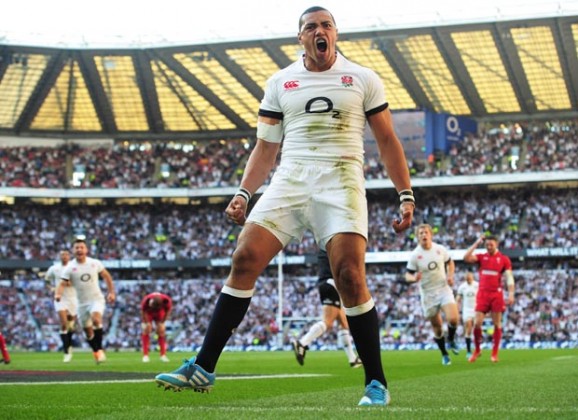
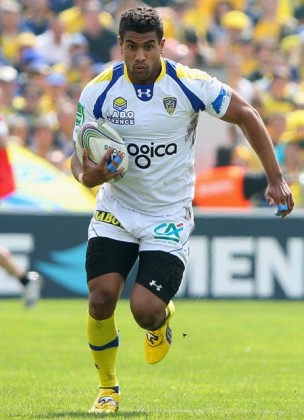



















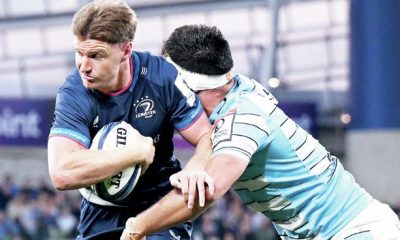

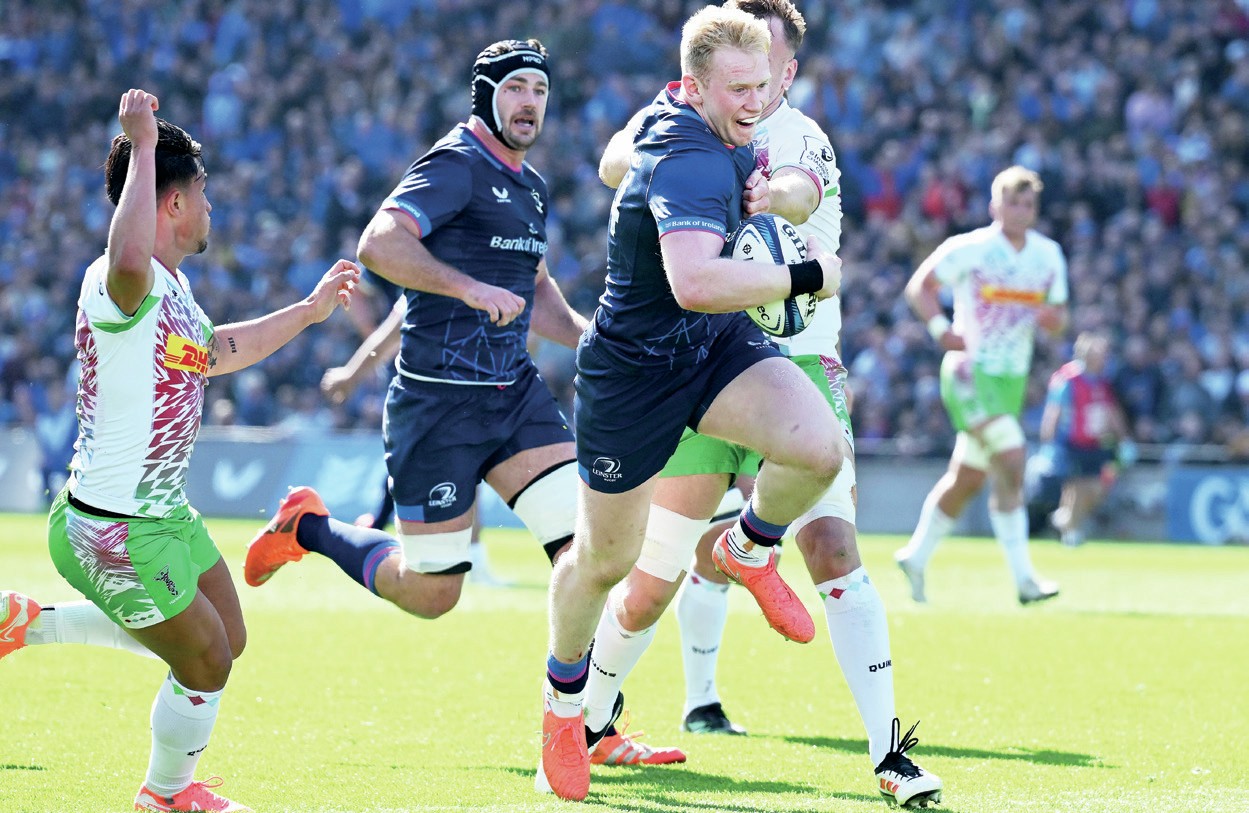

You must be logged in to post a comment Login